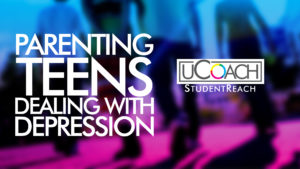Youth Coaching vs Mentoring: The 8 Key Differences
What is Youth Coaching and Youth Mentoring?

What is the difference and why does it matter? For starters, a mentor and a coach are two very different things.
The purpose of a coach is to guide you to a specific goal in life, to help you maximize your own abilities. The quote above suggests an important part in a coaching relationship. Coaching gives skills and abilities to the participant to succeed in specific areas of their life.
The purpose of a mentor on the other hand is to impart wisdom and knowledge to help guide you in life events.
A youth coach then is someone who is generally trained in how to help teens in specific areas of their lives. This means they understand the teenage brain and are able to help teens learn new life skills more successfully that best benefit their learning.
The relationship aspect of this is more professional than personal, as the coach isn’t necessarily developing a strong relationship with the youth they are coaching.
For example, here at StudentReach we have our own teen life coaching program. The program teaches teens how to be healthy in the four areas of their life: mentally, socially, physically, and directionally.
Our program is implemented in high school classrooms, so we have 2 coaches per class. The average class being 20 students. Our coaches are unable to develop personal connected relationships with each student, which is the difference in a mentor.
A youth mentor is an adult who cares about the teen they are mentoring enough to advise them, teach them, and be a role model. who develops a more personal relationship in the mentee and mentorship role with your teen, which allows them to give advice to better succeed in life.
1. Skills and Training

Youth Coaches: most often receive special training and certifications to guide youth in achieving their goals. Usually, a coach will go through a special program created with the teen in mind. They learn skills to teach teenagers as they learn differently than adults.
Youth coaches are also often individuals who have degrees in subjects like adolescent development, social work, psychology etc. They use these degrees and become youth coaches because these subjects paired together are beneficial.
The curriculum StudentReach uses is research and evidence based. It was co created with a psychologist. The program uses interactive modules, assessments and live instruction to teach students how to be better equipped at dealing with things in their lives.
Our coaches are not certified, but they do receive training before they begin and monthly while coaching.
If interested in topics we teach go to studentreach.org/ucoach for videos teaching similar subjects geared towards parents.
Youth Mentors typically do not have formal training in mentorship. There are programs that give trainings, but they do not come with certifications. Skills and training received do vary from program to program for both mentors and coaches.
2. Structure

Coaching is highly structured with specific skills targeted. There are things that everyone will experience so youth coaching aims to help teens develop skills they can use when they experience situations.
Because when they have the skills they can apply them. These are usually grounded in cognitive and behavioral therapy or CBT. The curriculum for StudentReach is based on cognitive behavioral therapy techniques and principles.
Youth Mentoring is informal. This happens as situations arise in a teen’s life. you can’t predict everything that will happen, so you can’t advise them for every situation, because such experiences are different for each person. Which is why when a situation arise a youth mentor advise the teen, because context the situation matters.
Also Read: Dealing with Teen Depression [2021]
3. Assessments and tools

Youth Coaches Often use formal assessments – they use assessments to evaluate students in specific topics and areas of their lives.
Because coaching is designed around cognitive learning, youth coaches use assessments created using this type of theory to evaluate students. StudentReach has specially designed assessments that come from decades of experience.
These assessments ask students to evaluate themselves, with questions about positive and negative influences in their lives, habits they form, how they deal with conflict, rating their health in the 4 areas of mental social physical and direction on a scale from 1-10.
These assessments are given at the beginning and end of the program, to evaluate how students engaged with the material and how they progressed through the course.
Youth Mentors might use a personality test, but generally do not use tools like this. Because youth mentorship is not focused on the mind and learning of skills like youth coaching is. A mentor does not typically use assessments with their youth. They use conversation to assess what is going on in the teen’s life. its more personal sharing life experience rather than filling out a form online that will then be evaluated.
4. Conversational viewpoint

Youth Coaches are trained to help the individual find their own solution rather than offering their own advice or opinions. This is where that relationship difference comes in. A youth coach focues on helping the teen realize the answer to a problem, be it an existing or future problem. They teach youth the skills needed to find the answer rather than giving it to them.
Students in StudentReach’s coaching program are taught about the relationships they have in life, how negative and positive influences affect their own lives. They are taught to evaluate the relationships they have in their life, whether they are beneficial or not. Students are not outright told to cut ties with those negative influences, rather they are taught how to evaluate the relationship and take actions they deem necessary involving those individuals.
A youth mentor also wants the teen they work with to be able to figure out the problems on their own, but they offer advice and wisdom to situations rather than leaving the teen do this process alone.
5. Group vs Individual

Youth Coaches are trained to help the individual find their own solution rather than offering their own advice or opinions. This is where that relationship difference comes in. A youth coach focuses on helping the teen realize the answer to a problem, be it an existing or future problem. They teach youth the skills needed to find the answer rather than giving it to them.
Students in StudentReach’s coaching program are taught about the relationships they have in life, how negative and positive influences affect their own lives. They are taught to evaluate the relationships they have in their life, whether they are beneficial or not. Students are not outright told to cut ties with those negative influences, rather they are taught how to evaluate the relationship and take actions they deem necessary involving those individuals.
A youth mentor also wants the teen they work with to be able to figure out the problems on their own, but they offer advice and wisdom to situations rather than leaving the teen do this process alone.
6. Relational

Youth Coaching uses the learned techniques of building rapport with the teen but is focused on credibility through expertise.
StudentReach uses this principle in their coaching sessions. At the beginning and end of every session the coach shares a personal example form their life about that day’s topic. This shows the students that the coaches have been in these situations and can therefore speak to the expertise they are now presenting on the topic.
Youth Mentoring is nearly 100% reliant on relational rapport and can suffer from personality differences. If the youth doesn’t value their mentor and their experience, then the youth doesn’t benefit from this relationship because they are less likely to use the mentor’s advice.
7. Timeframe

Youth Coaching has a set timeframe with specific goals. These goals are usually outlined at the beginning of a program. Goals follow the acronym SMART- specific, measurable, attainable, realistic, time.
Youth coaches use SMART Goals because they often have a specific length of time for a program. So, they say that after 12 weeks a teen will have learned these specific skills.
StudentReach also uses SMART goals in their program. A typical course is one semester long. So after this semester students should have learned specific skills regarding their emotions, conflict resolution, gaining new knowledge and many other things.
Interested in your teen learning these types of skills? Visit studentreach.org/ucoach to sign up for updates regarding our online coaching program.
Youth Mentoring is a long-term relationship that is fluid and open ended. A youth mentor does not begin with an end in mind. They do not start this role saying after 12 weeks the youth I mentor will be able to handle these situations alone.
8. Compensation

Youth Coaches are paid professionals. Youth coaching programs also cost a few hundred dollars. You are paying for your teen to learn life skills from someone who received training in how best to practice this.
While StudentReach does pay their coaches, they are what you call a paid volunteer. The reason being they don’t want just anyone to coach, and if it were free, you might not put as much effort into what you do, as if you were being. It’s a bit of a psychology game.
Youth Mentors are usually volunteers. They are adults in a youth’s life who are currently in life where the youth wants to be. So, they come to this relationship to help guide the youth using their own experiences, so as to get the teen to where they want to be in the future.
Which is Better: A Coach or Mentor?

Youth Coaches are paid professionals. Youth coaching programs also cost a few hundred dollars. You are paying for your teen to learn life skills from someone who received training in how best to practice this.
While StudentReach does pay their coaches, they are what you call a paid volunteer. The reason being they don’t want just anyone to coach, and if it were free, you might not put as much effort into what you do, as if you were being. It’s a bit of a psychology game.
Youth Mentors are usually volunteers. They are adults in a youth’s life who are currently in life where the youth wants to be. So, they come to this relationship to help guide the youth using their own experiences, so as to get the teen to where they want to be in the future.






Leave a Reply
Want to join the discussion?Feel free to contribute!